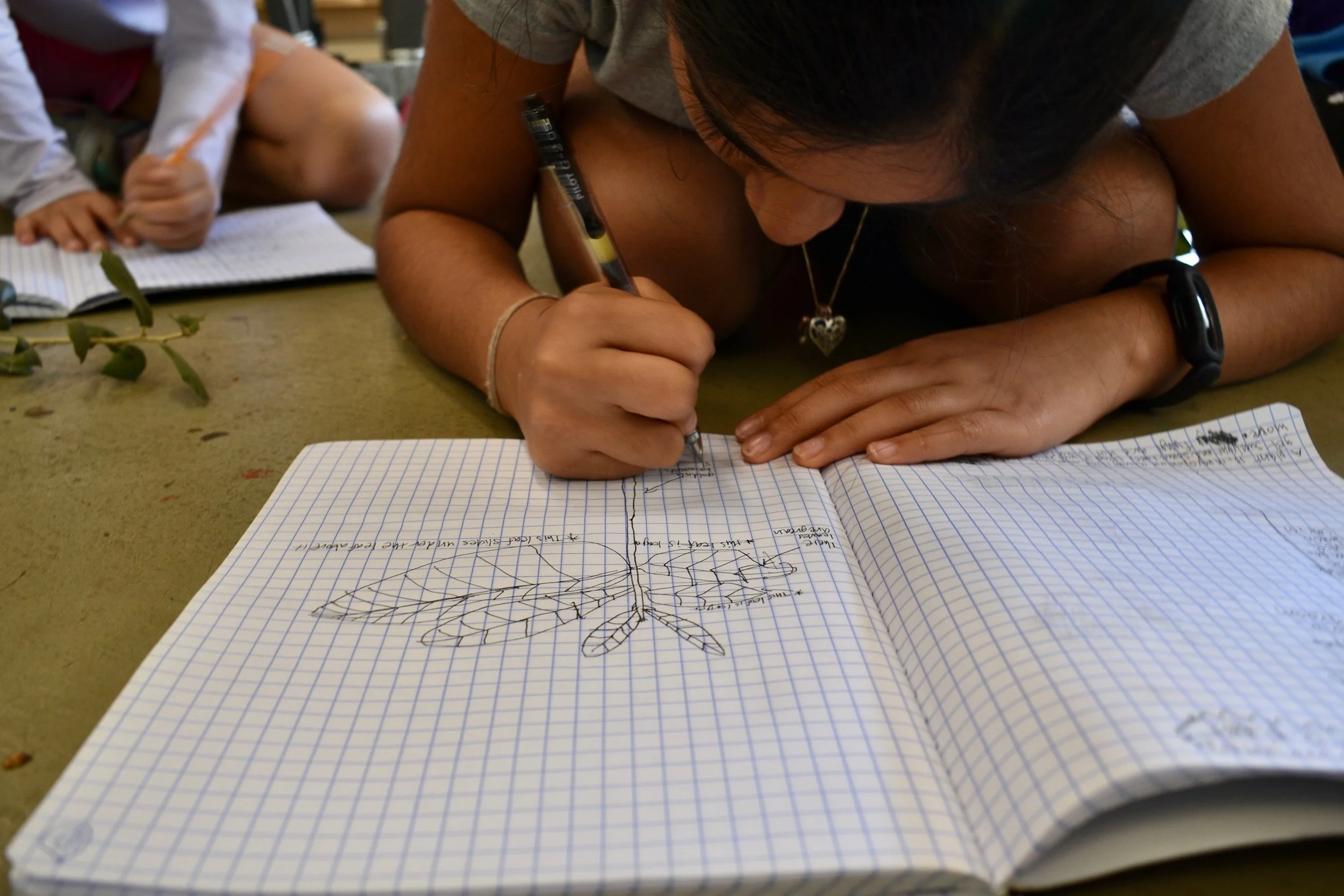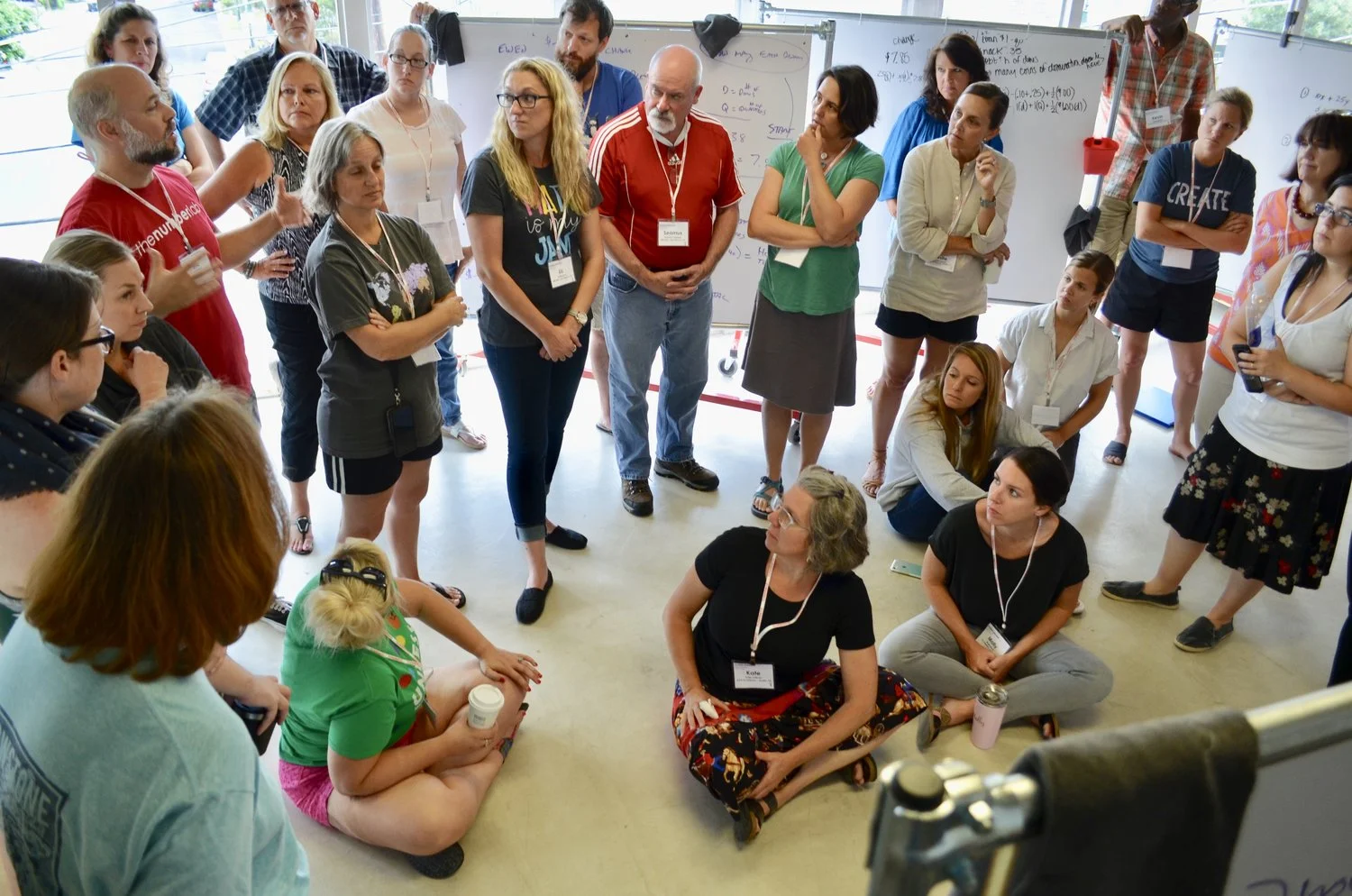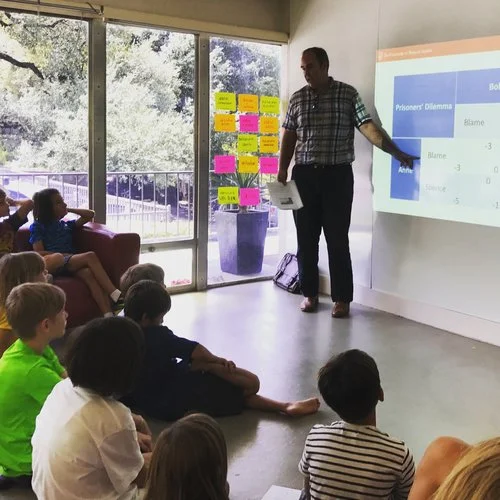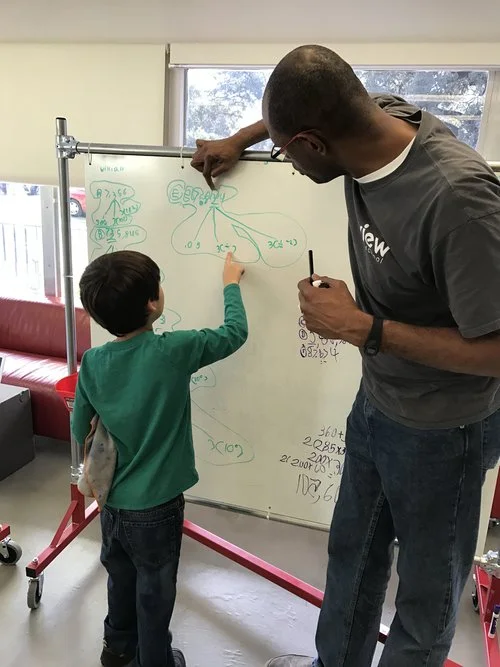In addition to our work with students at our micro school, we work with educators from around the nation to catalyze innovation in education. Help us spread that reach by ensuring the Long-VIew Teaching Team is part of the SXSW EDU 2020 lineup. Public voting contributes to the selection of sessions, so we ask you to help us out by casting your vote by Friday, August 23. Voting is easy….
Read MoreLong-View supports the learning of both our amazing student population, as well as the learning of schools from across the world. Through the number lab, our joint venture that is focused on teacher education, Long-View Micro School students and faculty share in the mission of helping other teachers meet the challenge of educating children at high levels in mathematics….
Read MoreWith just a few days of the school year under our belts, we had a guest stop by Long-View and take us through a workshop on a very high level topic: Game Theory.
Dr. James Spindler is a professor at UT in both the business school and law school and holds both a JD and a PhD in Economics. He came to teach us about economics and more specifically, game theory, which is the study of mathematical models of conflict and cooperation and is used in economics, as well as other disciplines....
Read MoreHaving been fortunate to observe a variety of math classrooms, especially within the independent school sector, we’ve come to learn a number of things, which we will write about across several blog posts. Today we are focused on the lack of metacognitive instruction and coaching within many math classrooms.
Metacognition research has assisted educators in changing the way we view learning. We know high achieving students usually apply metacognitive processes in their learning and problem solving. And students who apply metacognitive processes tend to be higher achievers. Recent studies have shown that even young children can apply metacognitive processes when the tasks fit their interests and capabilities. And any age-related development may likely be due to lack of appropriate exposure in school....
Read MoreThis past week Long-View mathematicians were presented the following problem:
9 – 3 ÷1/3 + 1
Do you know the correct answer?
This expression went viral in Japan a few years ago and only 60% of Japanese 20-year-olds could solve it correctly.
So why is it that most of the Long-View students solved this problem correctly (during the 6th week of school, no less)? Long-View kids know to look at a complex expression and....
Read More





